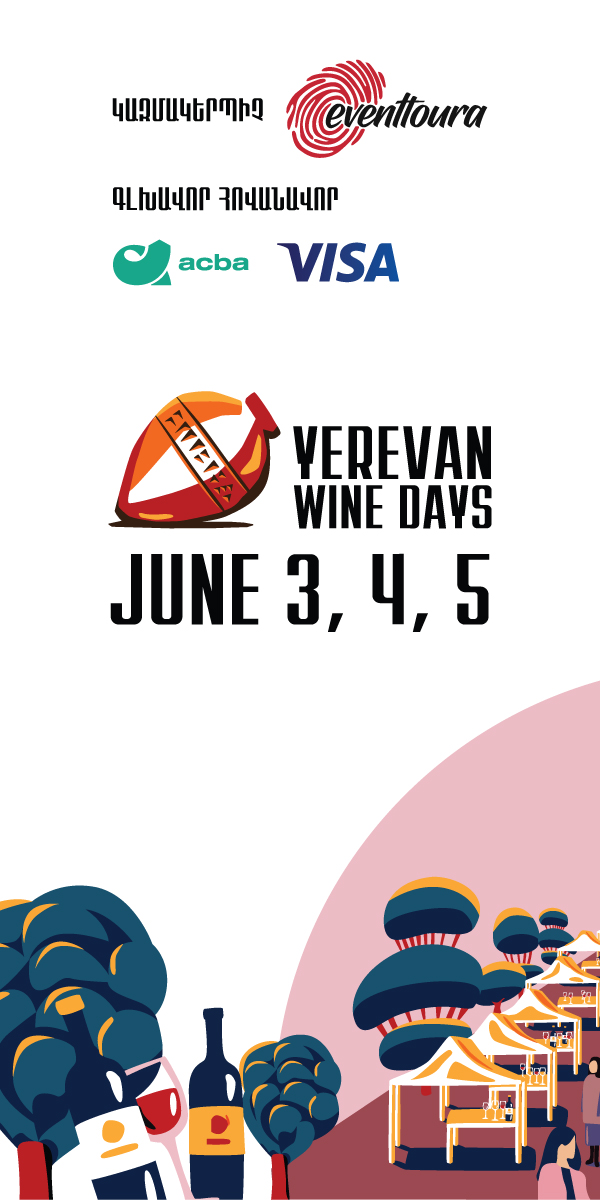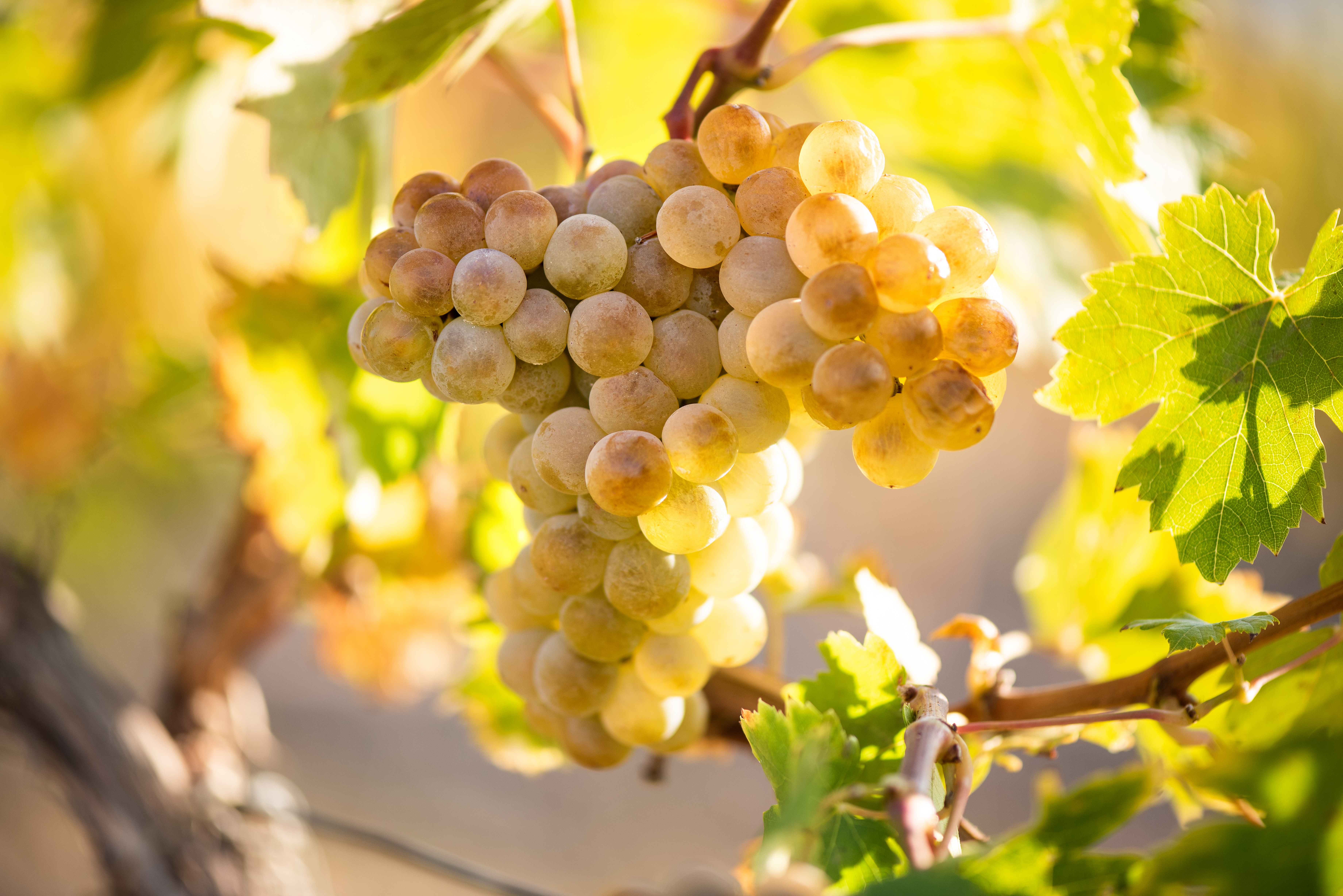Learned Language: Gabriel Rogel of Karas
- By Cole Tashjian
- Translated by Hayk Khemchyan
- 21 April, 2022
Karas winemaker Gabriel Rogel is a cleanly dressed, passionate figure. There’s an unmistakable sincerity to his impeccably measured words. Rogel, a native of Mendoza, Argentina, traveled nearly 8,700 miles to settle in Yerevan.
“I’m not sure what exactly brought me here. I told an Argentine paper once that I wanted to show the world the quality of Armenian wine,” Rogel remarks. When he arrived, Armenia grabbed him and wouldn’t let go. With each harvest, he grew closer to the land, its grapes, and its heritage.
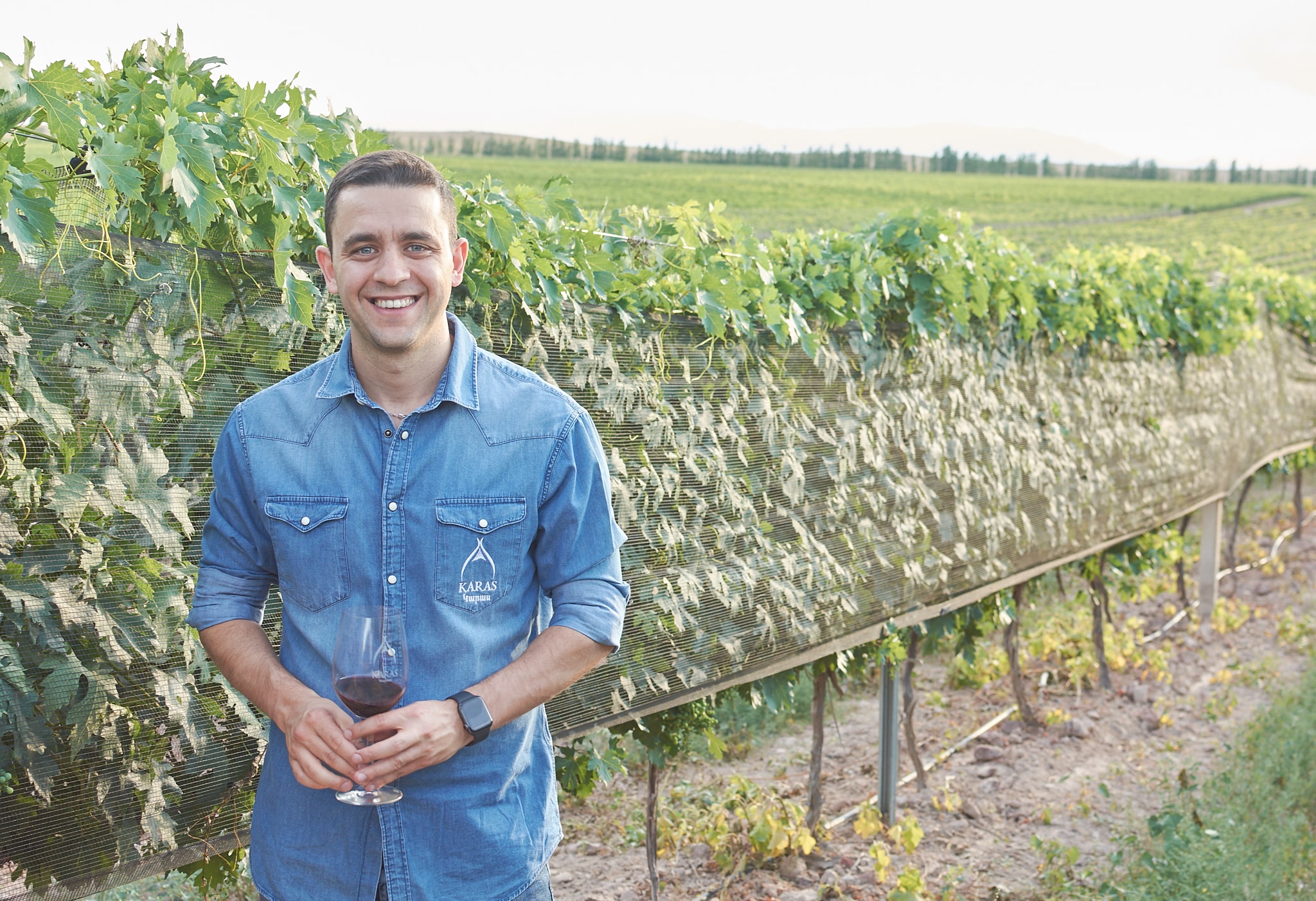 Gabriel Rogel | Photo Credit: Karas Wines
Gabriel Rogel | Photo Credit: Karas Wines
In his university years, Rogel’s gusto for winemaking stirred during a trip to France and Spain. He reminisces, “I was lucky. My friend’s uncle is very close to the President of Salon Champagne. We were in the chateau there, and they opened a 2002 vintage Champagne for us. It was something amazing, incredible; it was the closest I’d been to a truly iconic wine.” Already interested in wine at the time, Rogel’s fascination with winemaking came alive during this seminal experience. He continues, “I even had dinner with the winemaker. I asked him many questions [about] how they see their past and future and how the wine will evolve. They always think at least five to six years ahead.”
Adapting to a New Landscape
This experience sparked some of Gabriel’s most admirable qualities: attention and love for details. Many enter the world of wine for its glamor or mystique, where spending a day shoveling dirt and sanitizing tanks may not seem so enticing. However, for Rogel, every single detail is paramount. “To be a winemaker, you need to pass through the whole process and really get your hands dirty. If you haven’t worked the vineyards and cleaned the tanks with your own hands, you didn’t get the knowledge the right way,” he says.
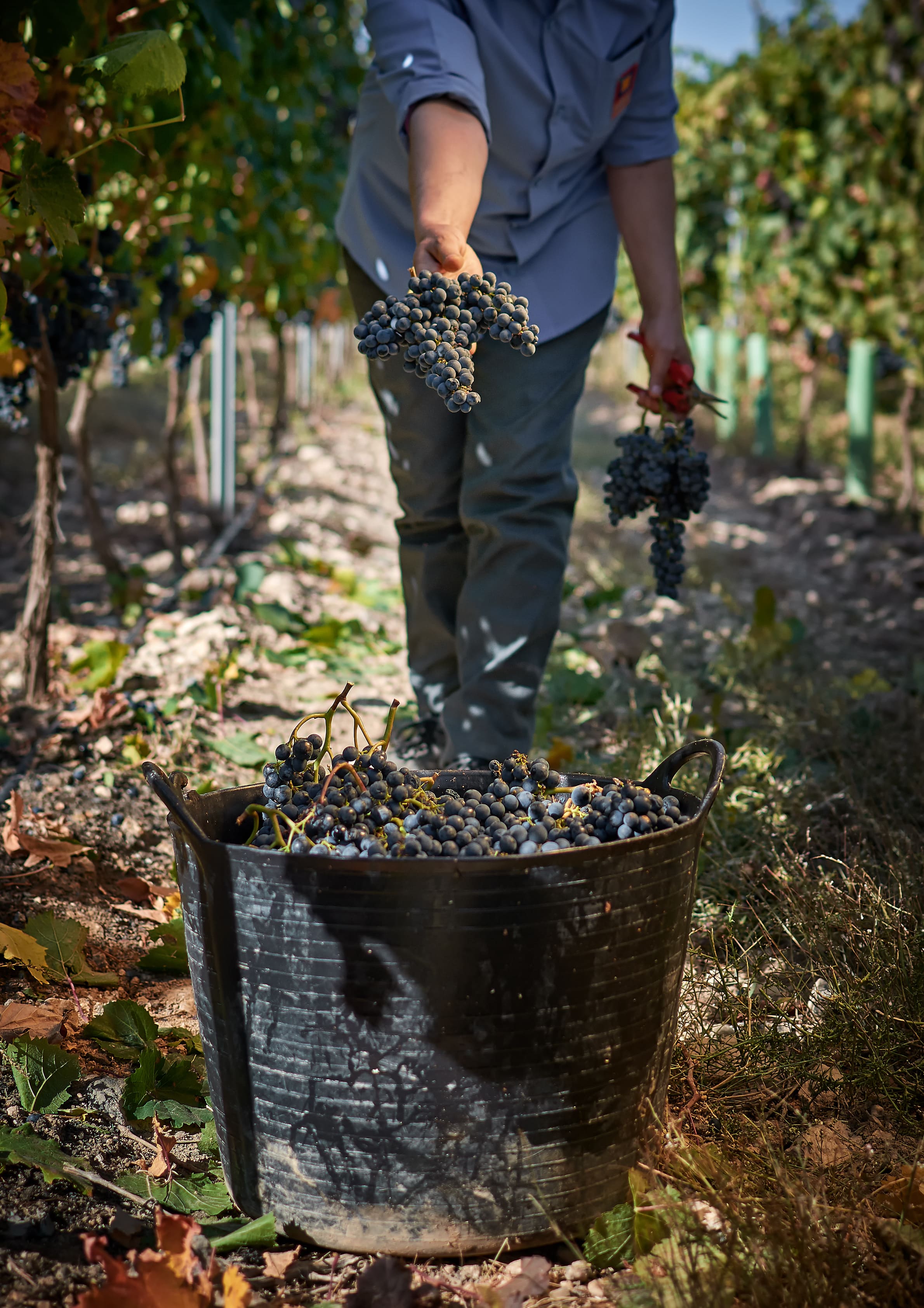 Working Vineyards at Karas | Karas Wines
Working Vineyards at Karas | Karas Wines
In his estimation, great winemaking comes from a deep care for all aspects of viticulture, no matter how seemingly insignificant. “Winemaking is about the details. When you’re paying attention to the details, especially the very stupid ones, only then is it possible to reach the highest quality.” Rogel insists on pressing grapes manually for all Karas Reserve wines. The winery’s small basket press, a technology dating from the early middle ages, is his tool of choice for this work. Like the rest of his winery, it is spotlessly clean. Surrounded by centuries more modern equipment, the press’s squat stature projects a sort of pride: it has stood the test of time—and won.
Though the charming basket press is many centuries Rogel’s senior, they share a similarity: resilience. He faces countless novel challenges in his work life that make this resilience key.
First, he must navigate the difficulties of expatriate life. In Armenia, this means learning a language that features a six-syllable word for ‘thank you.’ It also means adapting to a culture still shedding its Soviet past and being set in its ways. As a result, Gabriel has not only had to bridge the language gap but also to build an understanding with his local staff. He comments, “I’m learning Armenian, and [the winery staff] is even learning some Spanish as well!”
He has also had to adapt his winemaking to a new climate, different soils, and indigenous grape varieties. As large-scale modern winemaking began in Armenia just a decade ago, Rogel had no research to rely on. Instead, he had to study, experiment, evaluate, and experiment again to understand.
A New Terrain
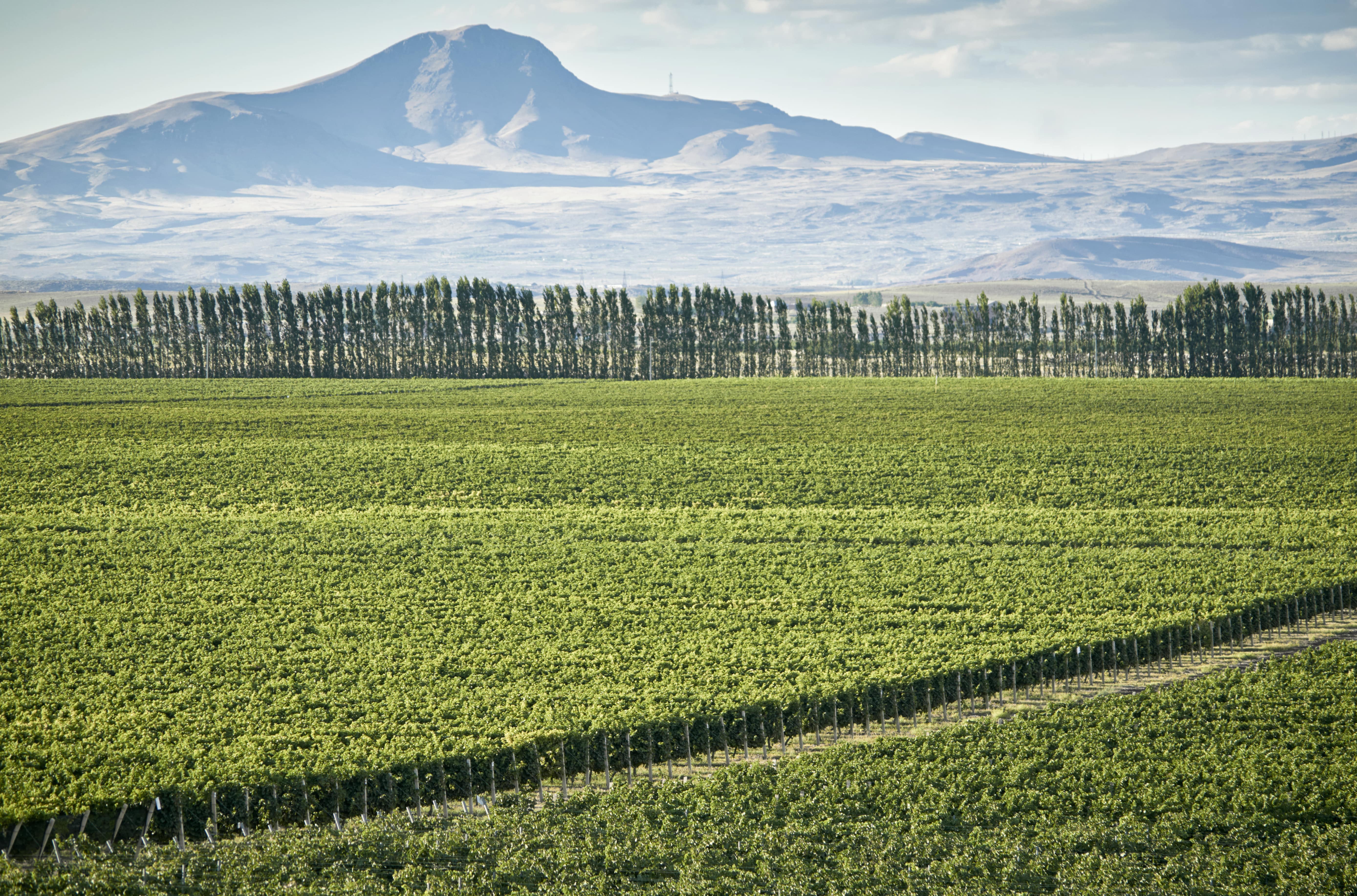 Vineyards at Karas | Karas Wines
Vineyards at Karas | Karas Wines
He has also invested a lot of time to see which European grape varieties can succeed in Armenia. For him, Syrah stands out as a big success story. Rogel expounds, “Syrah works amazingly here; I have planted it in volcanic and alluvial soil. The wine is completely different but fantastic in both. The vines grow happily. It’s a bit romantic to say, but you can see it’s never stressed. Even after strong hail hit them, the vines grew back even stronger. This adaptability will make Syrah taste differently when planted in different regions, which I’m excited to try.”
Syrah in Armenia follows the classic immigrant story: it arrived in a new country, overcame adversity, and found a way to thrive. Cabernet Franc and Montepulciano received honorable mentions from Rogel as well. “Cabernet Franc [is a grape] we’ve had a great experience with. Montepulciano, too. It’s crazy how well it does here and how consistent it is across vintages.”
Karas has also planted the indigenous red varieties Areni and Sireni (also called Khndoghni). For Gabriel, this meant applying a lot of hard work to get the formula right. He remarks, “I’m still trying to figure out the best way to produce Areni and Sireni. Everything is new to us, and we’re working very hard to learn. We had to discover from scratch how to do the right pruning, canopy management, fermentation temperature, everything. I am happy I gave it a chance and continued working with it, to see how best to work with [the grapes] in the vineyards and the winery. Now I’m becoming more comfortable with the varieties.”
Areni and Sireni are Armenia’s highest-profile red varieties, yet under a decade has passed since their use in modern winemaking at scale. Nevertheless, the quality wine that Karas and wineries of their tier have made from these grapes is a testament to what they can accomplish in the future.
 Volcanic soil at Karas | Karas Wines
Volcanic soil at Karas | Karas Wines
Rogel’s primary concern is learning more with each passing year and expressing his admiration for Armenia through his wines. “When speaking about my style in winemaking, I always love wines that speak for their terroir. This isn’t easy to do; you must learn everything about the region, the weather, the land, and even the people.”
This genuine captivation with all aspects of Armenia and its people propels him forward in his daily work. Rogel wants to spotlight everything he finds so captivating about this ancient country and share it with the world. The precise source of this passion is a mystery even to him, but he is far from alone. Countless people travel many thousands of miles to find an unexpected home in this charming corner of the Caucasus.
-
21 December, 2022
-
15 December, 2022
-
30 November, 2022
-
26 August, 2022
Similar Stories
-
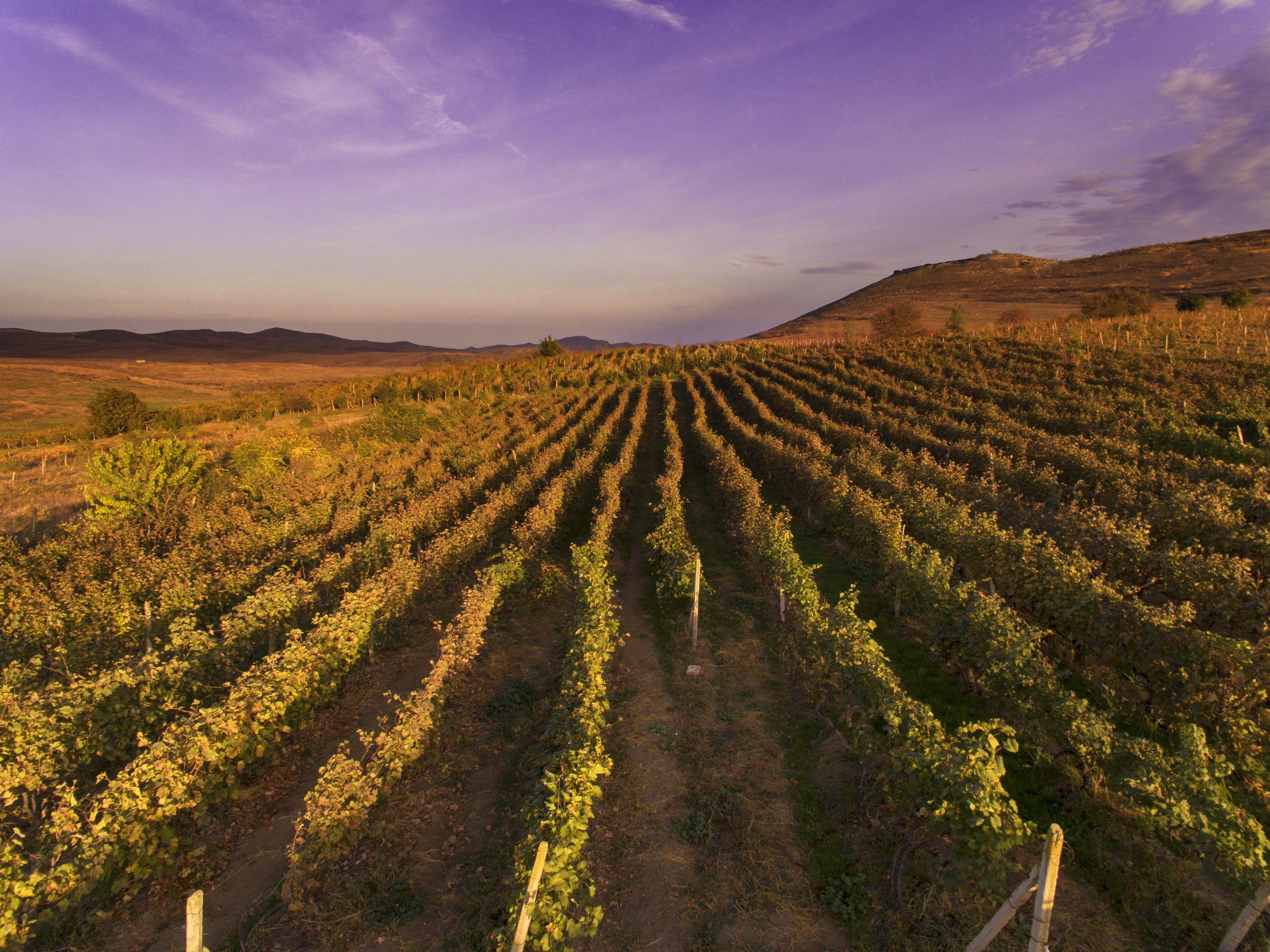 21 April, 2022Rows of vineyards stretch along the fraught border between Armenia and Azerbaijan, and now and then, they even take a bullet. For the community of Berdavan in the province of Tavush, 125 miles (200 km) from Yerevan, many inhabitants make their living exclusively off of these vineyards. Despite the unstable border and deadly crossfire, the vineyards are cultivated with care and what they yield is used to make quality wine.
21 April, 2022Rows of vineyards stretch along the fraught border between Armenia and Azerbaijan, and now and then, they even take a bullet. For the community of Berdavan in the province of Tavush, 125 miles (200 km) from Yerevan, many inhabitants make their living exclusively off of these vineyards. Despite the unstable border and deadly crossfire, the vineyards are cultivated with care and what they yield is used to make quality wine. -
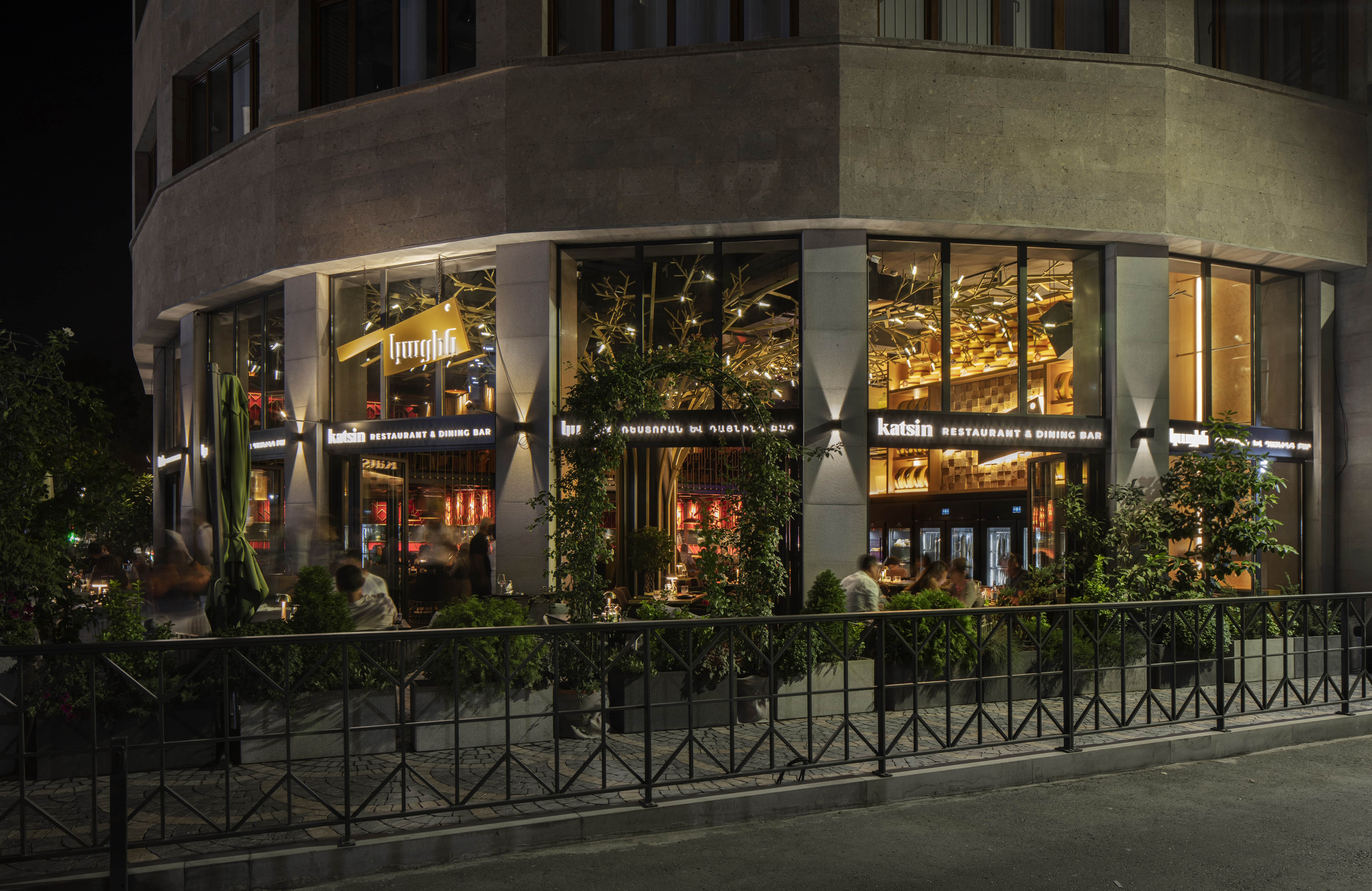 21 April, 2022On September 19th, 2020, a new restaurant opened its doors to customers in Yerevan. Katsin is unlike anything Yerevan has seen based on its size, comfort, menu, and service. Brothers Mher and Gevorg Adamyan conceived the concept, and by owning other cafés and restaurants around the city, have become leaders in the Armenian food scene.
21 April, 2022On September 19th, 2020, a new restaurant opened its doors to customers in Yerevan. Katsin is unlike anything Yerevan has seen based on its size, comfort, menu, and service. Brothers Mher and Gevorg Adamyan conceived the concept, and by owning other cafés and restaurants around the city, have become leaders in the Armenian food scene.


